

If you have ever felt like nodding off after a turkey dinner but then bounced back to life after a cup of espresso, you know that there are foods that help you sleep and those that keep you awake. Turkey could be described as a sleep-inducing food because it contains tryptophan, an amino acid that has been confirmed in this NCBI study Trusted Source L-Tryptophan: Basic Metabolic Functions, Behavioral Research and Therapeutic Indications This review provides a brief overview of the role of L-tryptophan in protein synthesis and a number of other metabolic functions. www.ncbi.nlm.nih.gov to produce serotonin. This brain chemical assists with relaxation, whereas the caffeine in coffee stimulates your cortisol levels and keeps you alert all night. Also, note that it is almost always the most nutritious foods that help you sleep better at night, so it is better to eat almonds, fatty fish and bananas rather than take sleeping pills or indulge in fatty, sugar-laden or carbohydrate-rich foods. This article describes how food and drink can be your best medicine when it comes to sleep quality and mental and physical health in general.
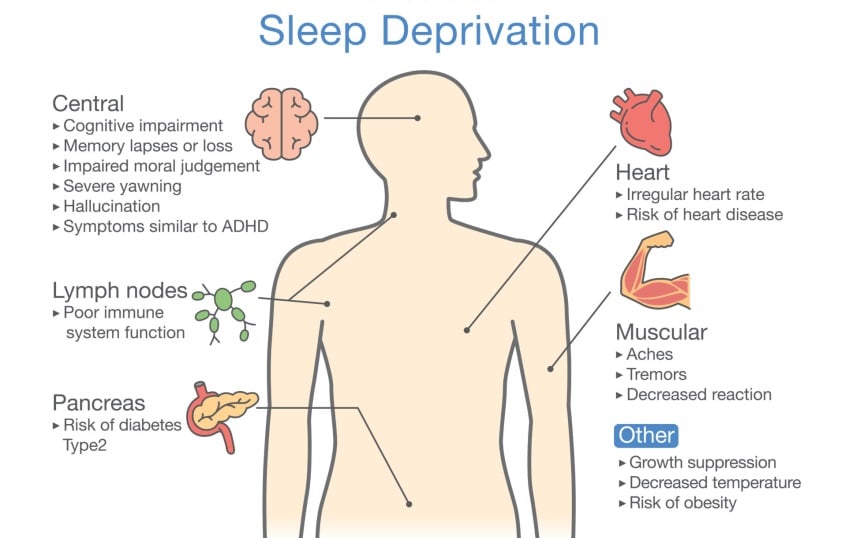
Foods that help you sleep throughout the night are crucial to your mental health because the longer and more deeply than you sleep, the more REM sleep cycles you experience. The REM stage of sleep is the fourth deep stage in the five stages of sleep that assists your mind with reviewing, processing, and analyzing everything that you have experienced during the day. You can read more about how the five stages of sleep, which must be experienced several times a night to keep you in optimum health, work in this American Sleep Association article Trusted Source 5 Stages of Sleep & Sleep Cycles | American Sleep Association Explore the 5 stages of the sleep cycle (light sleep, deep sleep, NREM & REM), their characteristics, k-complexes, spindles, dreaming & muscle movements. www.sleepassociation.org .
Sleep deprivation Trusted Source Sleep and Mental Health - Harvard Health Publishing - Harvard Health Mental health clinicians traditionally viewed sleep disorders as a symptom of a psychiatric disorder, but research suggests that in some patients sleep issues may be a cause of the disorder. www.health.harvard.edu is a double-edged sword that afflicts of 80% of individuals with psychiatric disorders, as it can be a symptom of a disease or it can be a cause of disease. Diagnosis of a mental health problem gets quite complex, with insomnia being a major symptom. Sleep problems are particularly common in anxiety depression, bipolar disorder, and attention deficit hyperactivity disorder patients. Thankfully there are foods that can help you fight insomnia, but please note they don’t necessarily treat psychiatric conditions that are causing sleeplessness in the first place. Consult a medical professional if you believe your insomnia is caused by a mental illness or psychologically traumatic life event.
The key to preventing mental illness is to practice sleep hygiene. It is beneficial to develop habits that encourage sleep, and that can include drinking or eating foods that make you sleepy before you go to bed, such as a cup of chamomile tea or a mix of carbs with protein such as banana and peanut butter with crackers. There are also foods that help you fall asleep fast, such as warm milk, turkey or almonds, or a cup of valerian tea. For more tips on to how to fall asleep fast, especially hard to do if you have anxiety or a deadline due the next day, there is some great advice in this article, especially if you are dealing with issues of pain, discomfort or anxiety.
Sleep deprivation can be deadly. There are many short and long-term health consequences of sleep disruption, including the gradual corruption of every system in the body, including the sympathetic nervous system, the circulatory system, and the metabolic system. Consequences can include inflammation, stress, mood disorders, memory deficits and, cognitive problems. Type 2 diabetes, hypertension, and colorectal cancer are also believed to be caused by a lack of sleep. Many cancers and chronic complaints are the result of sleep deprivation because it is during deep REM sleep that the body reviews its health status and repairs itself.
Lifestyle, environmental factors, psychosocial issues, and addiction, as well as many prescription medications, can also impact the quality of your sleep.
At this point, are you wondering just how much sleep you actually need? An adult over 18 needs 7.5 to 9 hours, with 1.5 to 1.8 hours of deep REM sleep. It also suggests that you avoid alcohol and caffeine right before you go to bed and instead eat foods that help you sleep faster, such as a hot malted barley drink or a decaffeinated green tea. It also suggests eating foods that calm the brain, such as salmon, nuts, and yogurt, just before bed so that you can get a full night’s sleep.
Many natural foods help you sleep that are almost as good as sleeping pills when it comes to inducing a full night’s sleep. We have researched the foods that help you sleep longer, such as walnuts, kiwifruit, tart cherries, and foods that help you relax and sleep, such as cashews, turkey, and chamomile tea.
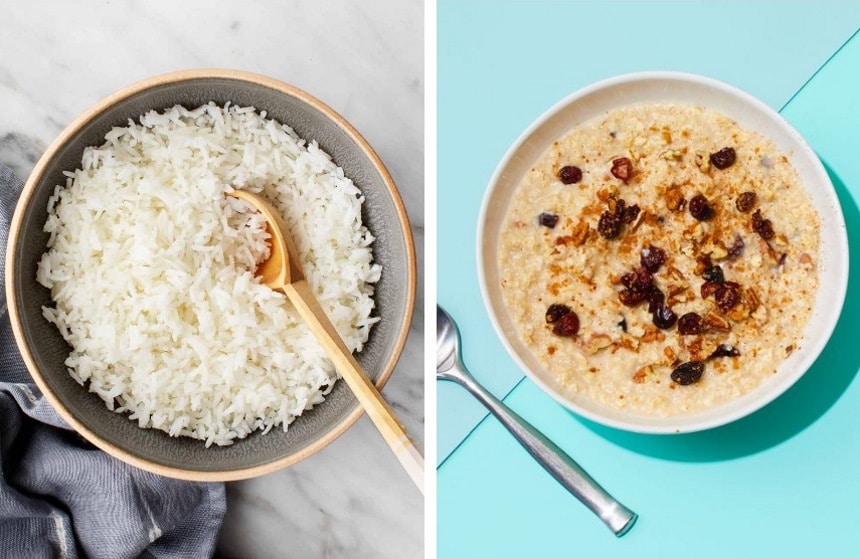
Complex carbohydrates have a high glycemic index, meaning they cause a rapid rise in blood sugar followed by a slow descent that can encourage a deep full night’s sleep.
1. Rice
A study in Japan Trusted Source Associations between rice, noodle, and bread intake and sleep quality in Japanese men and women - PubMed A high dietary glycemic index and high rice consumption are significantly associated with good sleep in Japanese men and women, whereas bread intake is not associated with sleep quality and noodle consumption is associated with poor sleep. pubmed.ncbi.nlm.nih.gov found that people who ate rice as a main starch all week, rather than noodles or bread tended to fall asleep faster because the food causes an insulin spike, which in turn causes brain melatonin and serotonin to surge throughout the body, causing a feeling of sleepiness.
2. Oatmeal
Oats are a complex carbohydrate that digests slowly, but they also contain tryptophan, which is converted to serotonin. Serotonin helps the body muscles relax and coaches your mind into a relaxed, pleasant state that promotes sleep.
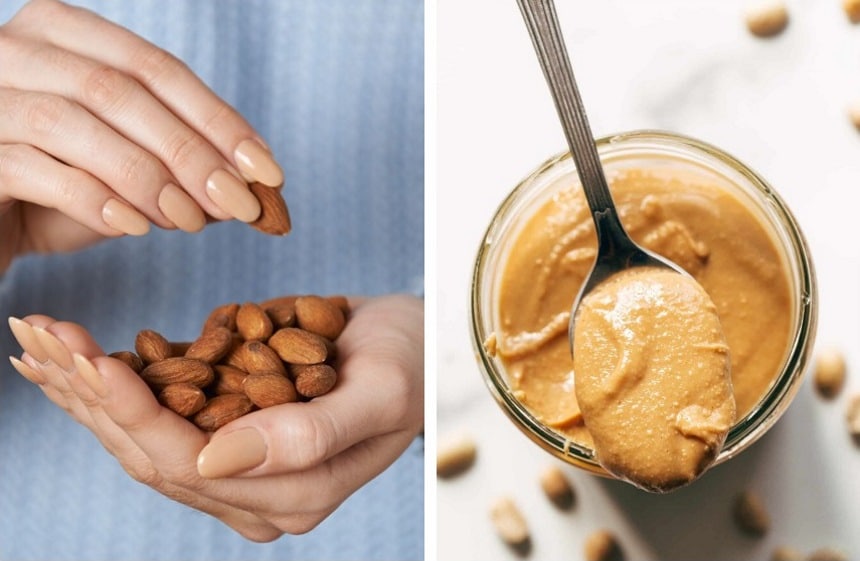
Most nuts contain, but especially almonds, walnuts, pistachios, and cashews contain essential minerals like magnesium and zinc, along with melatonin and protein, which can help with insomnia.
1. Almonds
Almonds are a source of melatonin that helps regulate your body’s internal clock and regulate it for sleep. They also contain magnesium, which reduces cortisol levels, a chemical that causes alertness and panic, helping you to sleep.
2. Natural peanut butter
Eating peanut butter before bed helps raise the levels of tryptophan in your brain. Eating unprocessed, unsaturated peanut butter on a cracker is the best way to encourage natural sedation before bedtime.
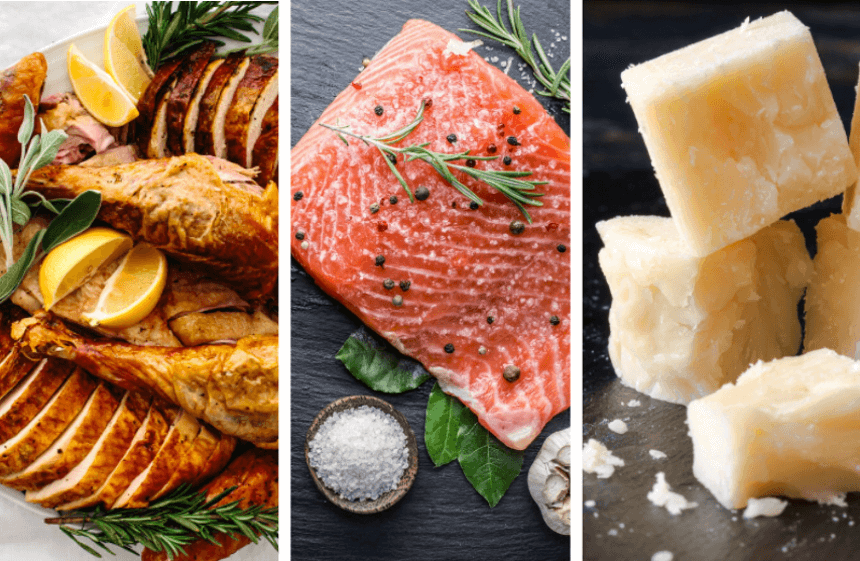
When consumed before better, lean proteins are associated with better sleep quality and duration and less sleep disruption throughout the night.
1. Poultry
Most poultry contains moderate amounts of protein. Poultry also contains selenium, a mineral associated with relaxing the muscles. Turkey contains tryptophan, which gives you that full, satiated feeling that makes you feel sleepy after a Thanksgiving meal. Eggs also contain tryptophan, helping you to stay relaxed during the day and sleepier at night.
2. Fatty fish
A randomized controlled tria Trusted Source Fish consumption, sleep, daily functioning, and heart rate variability - PubMed Fish consumption seemed to have a positive impact on sleep in general and also on daily functioning, which may be related to vitamin D status and HRV. pubmed.ncbi.nlm.nih.gov l investigating the relationship between sleep and eating fatty fish showed that eating fatty fish 3 times a week improved sleep quality.
3. Low-fat cheese
Low-fat cheeses are high in tryptophan which promotes the release of the hormone serotonin, which encourages the body to relax. Cheese is also high in calcium, which is effective at reducing stress.
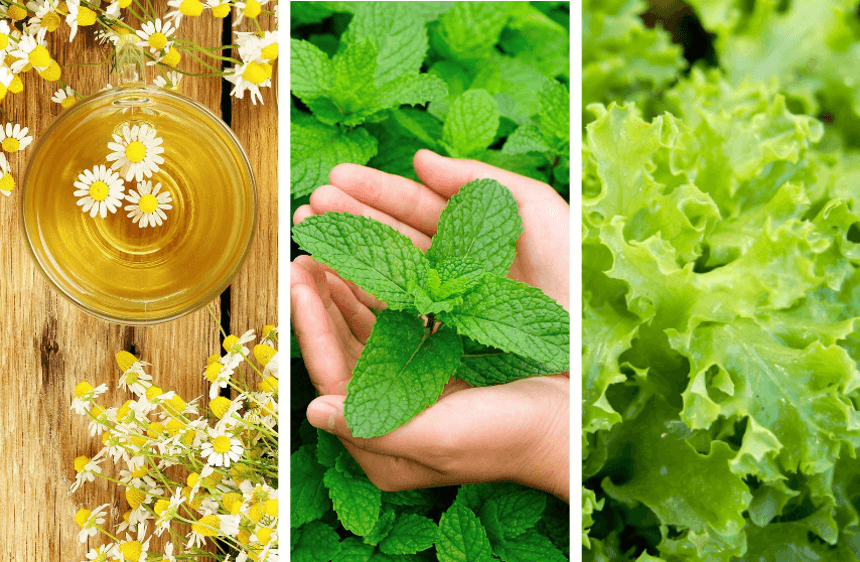
There are a number of herbs that can help you fall asleep. Simply add any of these to a salad, stew, or salad to help you relax when it is time for bed. However, they are best added to hot water in a teapot and brewed as a sleep potion before bed.
Lettuce should also be mentioned here as a relaxant for the muscles and inducer of sleep. Lettuce is high in calcium and can help to reduce stress in muscles and nerves. A salad with red leaf lettuce, a bit of cheese, nuts, and an olive oil dressing with any of the above fresh herbs added to it can help you get a good night of shut-eye.
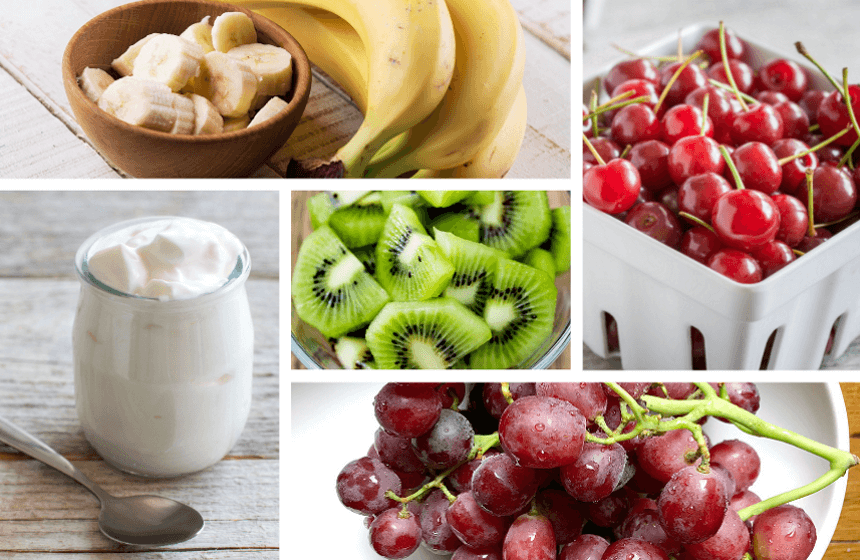
Snacks that induce sleep might have the hormone melatonin, high potassium levels, folate, or other vitamins and minerals that might help you relax and sleep, improve sleep quality, and increase REM sleep.
1. Bananas
Bananas are high in magnesium and potassium are both key minerals that contribute to the relaxation of muscles and elimination of mental stress.
2. Tart cherries
Tart cherries, sometimes called sour cherries, contain melatonin, a known hormone that increases the quality and duration of sleep.
3. Kiwi
The high levels of folate and potassium in kiwi fruit can help you fall asleep faster. Eating two a week is thought to improve your sleep.
4. Yogurt
Yogurt contains a mix of carbohydrates and protein that helps prevent the hunger pangs that can cause you to wake up at night and interrupt your sleep cycles.
5. Red grapes
Red grapes have above-average concentrations of melatonin that help regulate circadian rhythm and promote healthy sleep.
There are many hot teas and milk-based beverages that are well-known for inducing sleep, including herbal teas such as chamomile and passionflower and milk such as malted milk and golden milk.
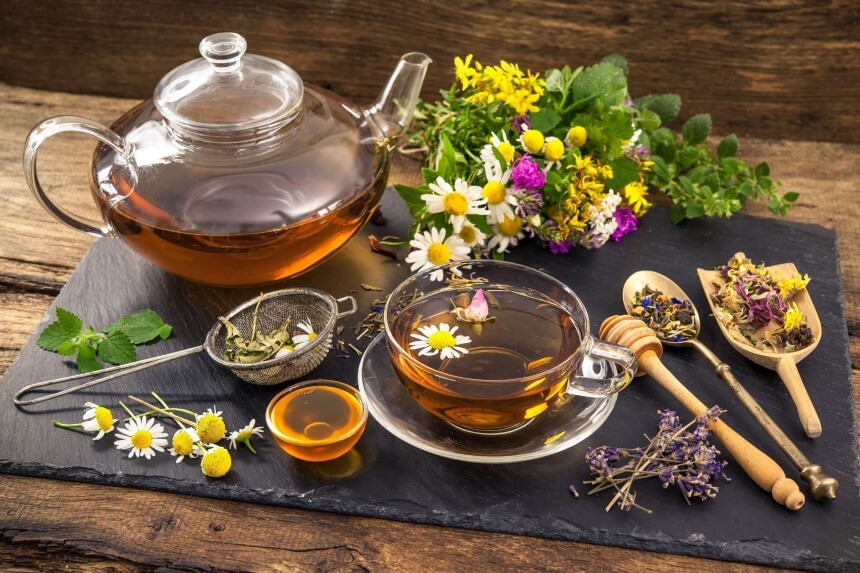
Herbal teas can help lull you to sleep tonight because they contain flavones. These are a class of antioxidants that relax muscles, reduce anxiety and depression.
Chamomile tea is the most well-known of the sleep-inducing herbal teas, as it contains apigenin that informs certain receptors in your brain that it is time to go to sleep. People who drink chamomile tea may fall asleep 15 minutes faster than usual.
Other herbal teas that assist with sleep are valerian, linden, passionflower, lemon balm, and magnolia bark. Just be sure that the tea you select does not contain caffeine.
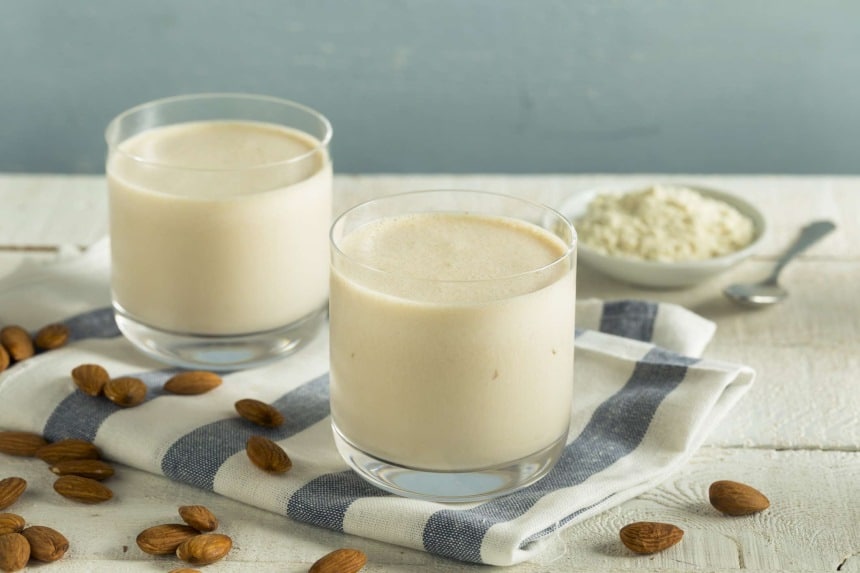
Malted milk is one of those traditional foods that help you go to sleep faster. It is made by combining heated milk with a specially formulated powder, usually sold under the brand names of Ovaltine or Horlicks. The milk contains the hormone melatonin, which induces sleep. Foods with high levels of Vitamin D and B, such as these malted beverages, may also help you get more quality sleep time with fewer interruptions.
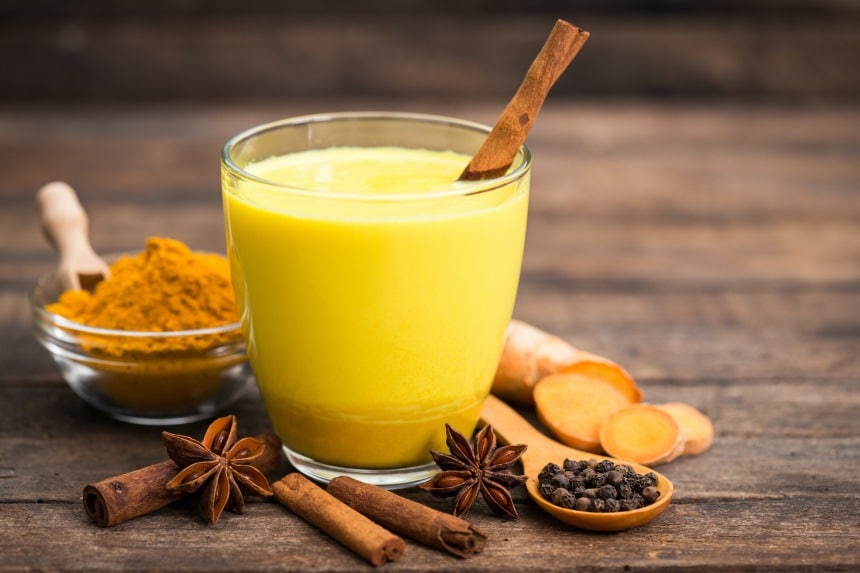
Golden Milk is a very traditional Ayurvedic remedy for insomnia. It is made by mixing the spice turmeric with warm milk, cinnamon, and ginger. It is a potent anti-inflammatory that also helps to improve mood, help with depression, and lower anxiety levels.
Just as there are food and drinks that you should consume to promote sleep, foods and drinks can prevent a restful night. If you want to sleep that full 8 or more hours and experience at least 5 to 6 full cycles that finish with REM sleep, then there are some foods that you should definitely avoid
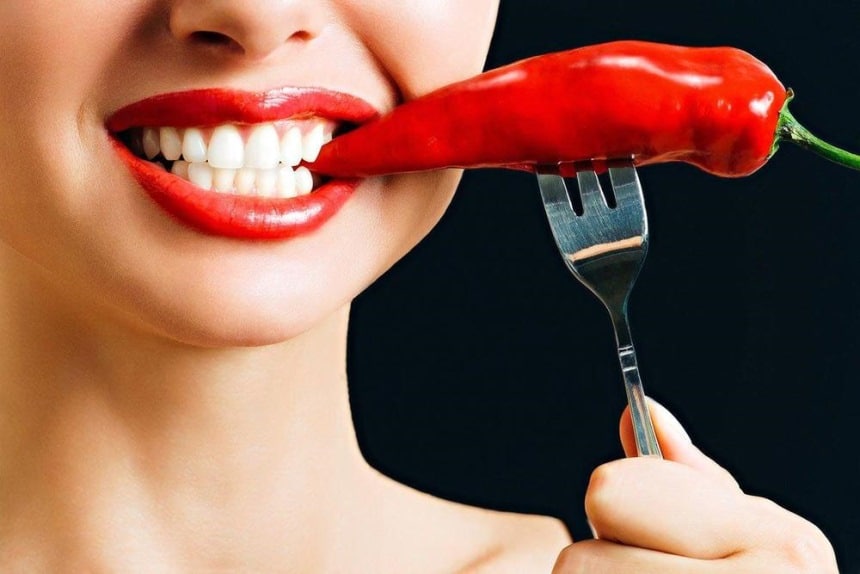
Be very careful not to consume spicy food before bedtime to avoid throwing off your sleep cycles with acid reflux or trips in the middle of the night to the bathroom. Spicy food is also very stimulating and can cause you to sweat or experience flushing during the night. It’s probably a good idea to eat Chinese or Indian foods much earlier in the day to avoid sleep disruption. Stay away from hot sauces that can overstimulate your digestive system and keep you up all night.
If you are in the habit of consuming potato chips before you go to bed at night, then you might suffer from sleeplessness due to irritability or stress, which is caused by a high sodium diet. It might be helpful to use less salt if you want to get a better night’s sleep. The other problem with high salt intake just before bed is that it can cause you to have to go to the bathroom more often during the night. This condition is called nocturia.
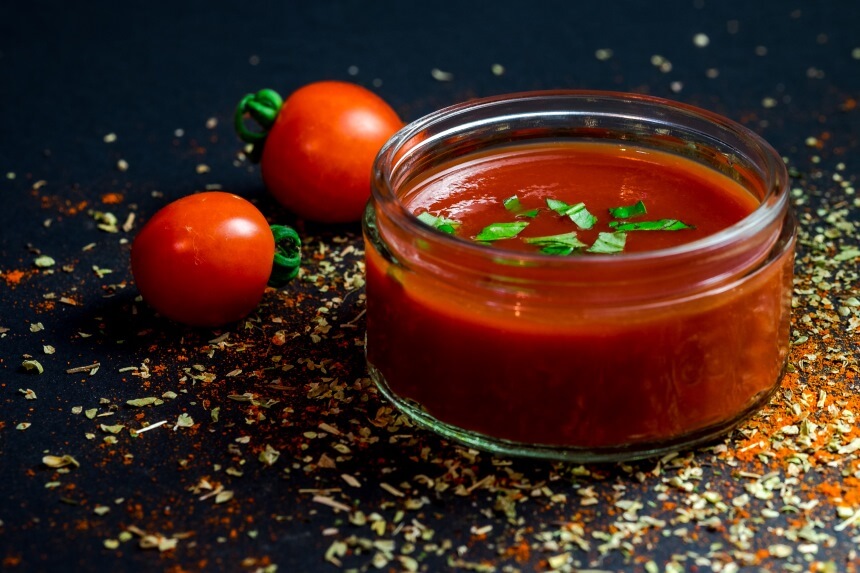
You need to avoid tomatoes completely before you go to bed. Tomatoes are rich in tyramine, an amino acid that triggers the brain to release norepinephrine, a stimulant that boosts brain activity and delays sleep. Other tyramine-rich foods include watermelon, eggplant, soy sauce, and red wine.
If you can’t sleep then, simple carbs might be to blame. Simple carbohydrates are quick-burning fuel for your body that breaks down rapidly into sugars when consumed. This high GI (high glycemic foods) are digested quickly, causing a rapid spike in your blood sugar and insulin levels leading to an increased risk of obesity, diabetes, overeating, and now, insomnia. The result is restlessness, irritability, and an overactive brain.
Fatty foods may be the cause of both daytime sleepiness and insomnia. In fact, if you have habits like eating a fatty cheeseburger or French fries before bed, then it may take you three times as long to get to sleep, and once you are asleep, you may experience more tossing and turning. To sleep well, avoid eating fatty foods at lunch and dinner and eat them before bedtime.
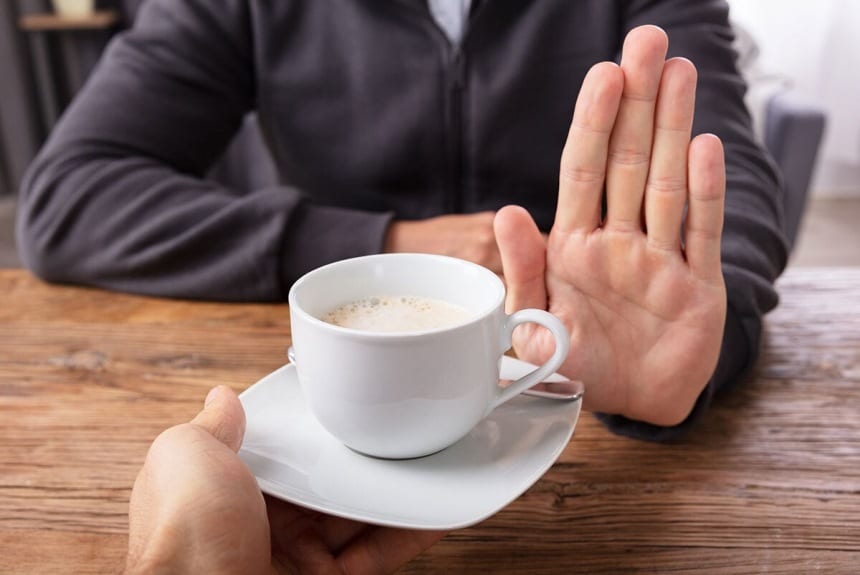
Coffee contains caffeine, a known stimulant that can keep you up all night, especially if you insist on consuming it just before bed. To avoid insomnia, stick to drinking one cup a day, never more than six ounces, and always consume it in the morning.
Although alcohol may cause you to pass out, the result is not high quality sleep. Alcohol acts as a sedative that slows down brain activity but it also disrupts your body’s natural circadian rhythms. Even moderate alcohol consumption can throw off your metabolism enough to disrupt your sleep cycle. Heavy drinkers are also at a higher risk of obstructive sleep apnea, which can increase your risk of heart attack, stroke, and sudden death.
A study was done on Energy Drink Consumption and Its Association with Sleep Problems Trusted Source Energy Drink Consumption and Its Association with Sleep Problems Among U.S. Service Members on a Combat Deployment — Afghanistan, 2010 Mental Health Advisory Teams conduct comprehensive mental health surveillance of U.S. service members in combat environments and have administered the Deployment Well-Being Survey in Iraq during 2003–2009 and Afghanistan during 2005–2010 and 2012. www.cdc.gov found that one energy drink contains the caffeine equivalent of three cups of coffee and that they also include other herbs and chemicals that are meant to boost mental alertness. The study also noted that these products are unregulated and were known to interact with alcohol, cause anxiety attacks and reduce sleep cycles to an average sleeping time of 4 hours at night. Clearly, this study showed that this is not the type of beverage you want to consume if you want to experience a healthy night of sleep cycles.
Although food can be your best medicine for better sleep, keep in mind that very few foods are magic bullets when it comes to curing insomnia. Cutting out fatty and refined foods, simple carbohydrates, and caffeinated drinks might have you seeing changes in sleep patterns sooner than you think. Improving your diet may help improve your sleep quality if it is done in conjunction with other lifestyle habits such as getting enough exercise and quitting drugs, alcohol, and caffeine. Combining these measures with a healthy lifestyle, with no smoking or drinking, and more exercise, can usually assist most people with insomnia.
Obviously, foods and drinks that help you sleep are not the total solutions when it comes to getting the rest you need. Your bedroom must also be your sanctuary. It is a good idea to sleep in a cool dark place with a proper mattress or pillow. If you are a shift worker or if too much light in your room is a factor, then consider investing in a breathable light bamboo sleep mask like the one made by Simply Organic Bamboo. A good pillow that suits your sleeping style, whether you sleep on your side, back, or tummy, is also important, and there is a selection of AirFoam Pillows at Nolah that may help you rest more comfortably at night.
Dealing with your diet is the place to start when combatting sleeplessness. Begin with eliminating problematic foods such as fast food, fatty dishes, spicy dishes, salty foods, and tomato-based sauces and eliminate beverages such as coffee, colas, alcohol, and energy drinks.
Do this in conjunction with quitting tobacco and recreational drugs that might be disrupting your sleep cycles. Start by adding sleep-inducing foods such as herbal teas, fatty fish, nuts with good fats, tart cherries, yogurt, cheese, rice, and oatmeal to your diet.
There is no sense in trying these foods out as sleep remedies if you are still indulging in sabotaging habits, such as over-snacking, smoking, or drinking. If you are truly interested in experiencing the benefits of foods that help you sleep, then there must be some attention to your overall lifestyle, including the conditions that you sleep in (investing in a better pillow for example) and getting enough fresh air and exercise.